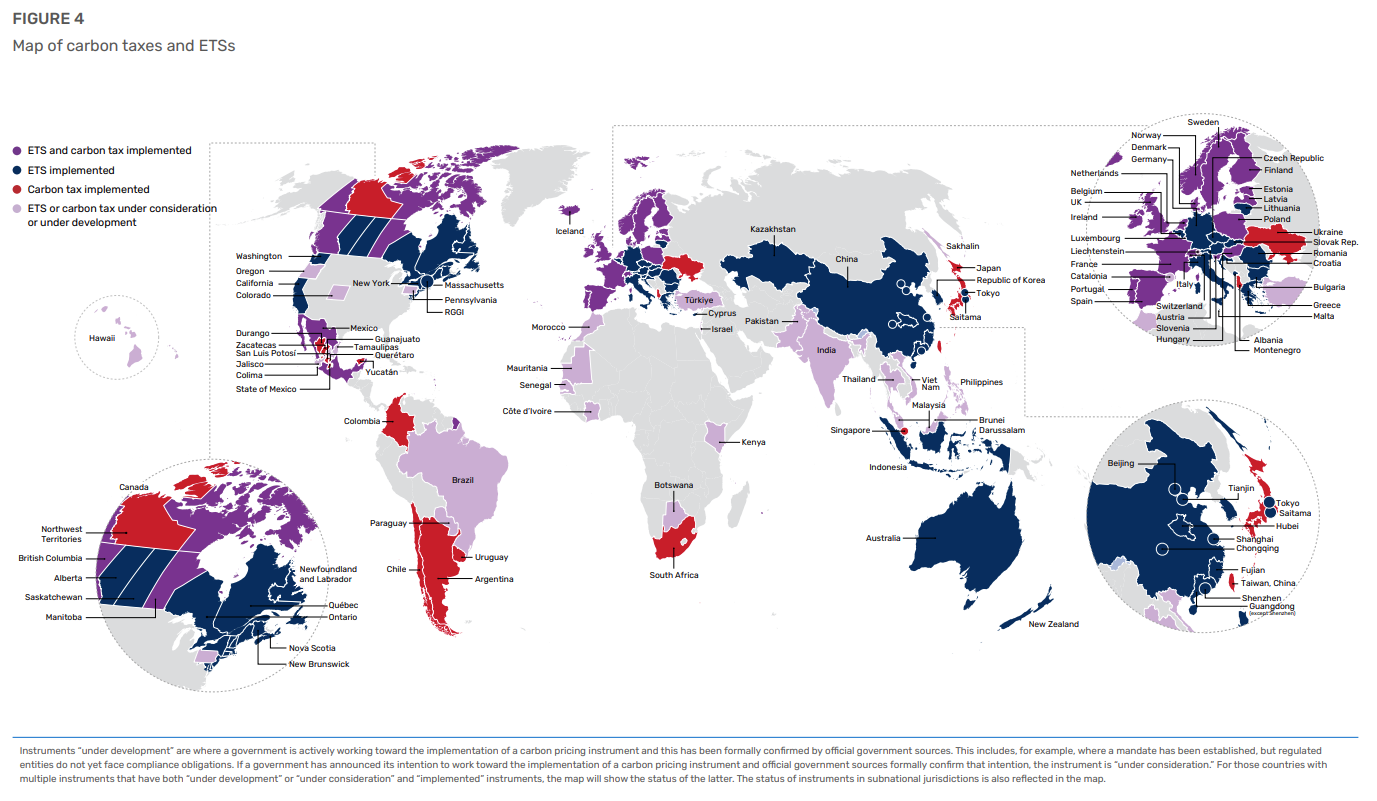Three carbon markets facing electoral turbulence in 2025
Opposition parties paint carbon pricing as inflations 'pantomime villain'
Welcome to Carbon Risk — helping investors navigate 'The Currency of Decarbonisation'! 🏭
If you haven’t already subscribed please click on the link below, or try a 7-day free trial giving you full access. By subscribing you’ll join more than 4,000 people who already read Carbon Risk. Check out what other subscribers are saying.
You can also follow on LinkedIn and Bluesky. The Carbon Risk referral program means you get rewarded for sharing the articles. Once you’ve read this article be sure to check out the table of contents [Start here].
Thanks for reading Carbon Risk and sharing my work! 🔥
Estimated reading time ~ 10 mins
2024 has been the biggest year ever for democracy. Across 76 countries, home to more than half the worlds population, citizens have headed to the polls in their droves.
Apart from a few outliers, the trend has been the same - voters have called time on the incumbent party. It’s not the only factor behind the anti-incumbency vote, but the inflationary period over the past few years has been significant. Voters hate inflation, especially when there is a perception - rightly or wrongly - of unfairness.
Three of the largest economies within the G20 also face elections in 2025 that at least based on current polling, look set to follow the anti-incumbency trend exhibited in 2024. Carbon prices are being weaponised by all of the opposition parties, eager to direct the ire of voters worried about the squeeze on their living standards.
The outcome of the elections could have major implications for climate policy and the speed at which emissions are reduced. But it could also have an adverse knock-on impact on the climate policies of their neighbours, including delaying the introduction of more ambitious carbon pricing for another electoral cycle (see It's the carbon price, stupid!).
The recent experience in Washington State should prompt opposition parties to rethink their calls to abandon carbon pricing. On 5th November voters rejected Ballot Initiative No. 2117, which had called for the state to abandon its “Cap-and-Invest” scheme. The vote, 62/38 in favour of keeping carbon pricing, was a landslide. It marks a remarkable change in public attitudes since the beginning of the first Trump presidency. Back in 2016 Washington State voted 59.3/40.7 against carbon pricing.




